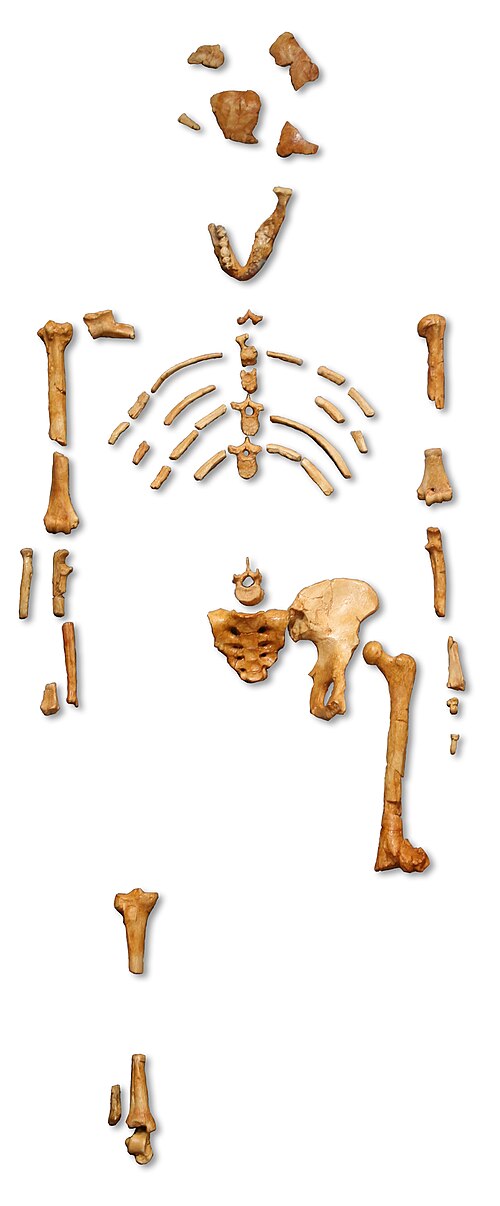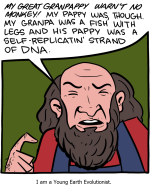In the neo-Darwinian model, DNA
replicates itself (using mutations and crossovers to form new variants in new organisms); DNA is then
transcribed into RNA, which is then
translated into proteins.
One of the important "inventions" before LUCA was DNA. DNA has a mutation rate thousands of times lower than RNA so was needed to preserve excellent genes when they came into being. To be useful, BOTH transcription (DNA-->RNA) and reverse-transcription (the RNA-->DNA path that preserves the good RNA in the first place) were needed. Note that direct DNA-->DNA replication wasn't even necessary at first.
Eventually direct DNA replication was "invented" and reverse transcription was no longer needed.
Reverse transcription is still used by certain viruses (e.g. HIV) but I thought it was obsolete in living organisms. Did I read that, or just assume it? Either way, it appears I was WRONG.
A very recent paper from Lund University in Sweden speaks of reverse transcription of introduced mRNA in human liver! (Please start a new thread if you wish to discuss any political implications of the paper. Here I'm just trying to understand the reverse transcription.)
One Wikipedia article
 Long interspersed nuclear element
Long interspersed nuclear element leads to others like
 Retrotransposon
Retrotransposon. But I am left confused. I hope someone will dispose of my misconceptions.
Advanced medicine can introduce new DNA into cells, but
 Vectors in gene therapy
Vectors in gene therapy do not seem to include mRNA or retrotransposons.
What is the evolutionary "purpose" of these retrotransposons? It seems they constitute a very large portion of the human genome.
The Wiki articles give me the impression that it is only
particular RNA sequences that can form retrotransposons. Why then was the mRNA studied at Lund University reverse-transcripted? Was that mRNA designed incompetently? Or is Lund University "pulling our legs"?



